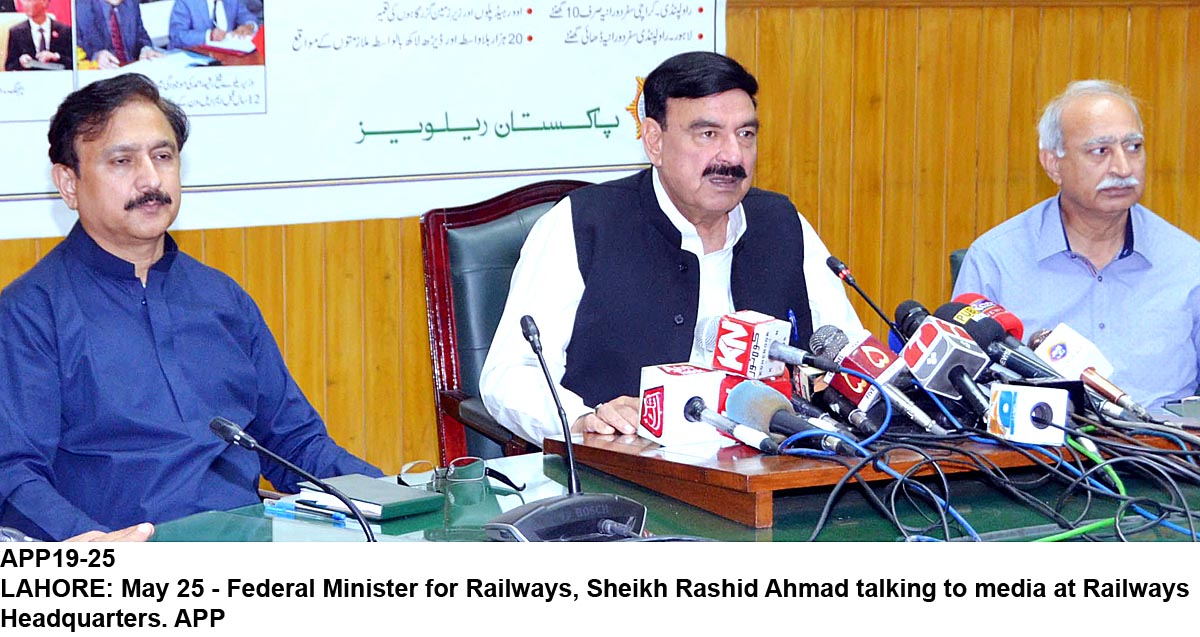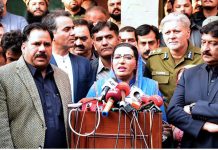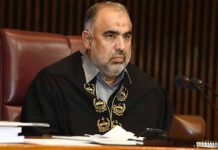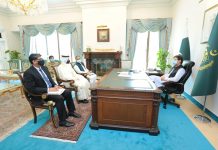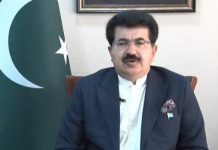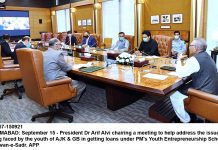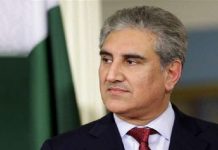ISLAMABAD: Advisor to Prime Minister on National Security Lieutenant General (r) Nasir Janjua has said that poverty stricken population easily falls prey to the devastating agenda of extremist elements.
He was addressing to the audience of International conference on National Socio-Economic Registry (NSER) which was held on Wednesday at
BISP headquarters.
He said that fault lines created by poverty are exploited by anti-state elements. In this backdrop, the role of
BISP is monumental not
only in saving the poorest of the poor from hunger, but also keeping them away from extremism and terrorism.
In his inaugural address, the Speaker National Assembly Sardar Ayaz Sadiq appreciated the targeting methodology of BISP, which allowed the diversion of funds to the real needy and poor, irrespective of their political, religious or any other affiliations.
He said that it was heartening to know that
BISP was now moving t
owards another phase of targeting, with improved design and dynamic approach. He also assured his full support to
BISP management in its operations and initiatives on behalf of the government.
Minister of State and Chairperson
BISP MNA Marvi Memon said that NSER, a national asset bigger than BISP, is being shared with all the public and private sector organisations for the poverty reduction and development programmes. Currently at number five in the world, BISP, under the PML (N) government, commits to become number one in the field of targeting.
Country Director DFID, Ms Joanna Reed, while addressing at the inaugural session stated that UK government supports
BISP because it takes the aid to the ones who need it the most. She mentioned that UK watchdog Independent Commission for Aid Impact (ICAI) in its recent report had appreciated the coverage of
BISP and added that the shifting of
payments to Biometric Verification System (BVS) and NSER update would make
BISP world leader striving for better lives. World Bank Country Director stated that
BISP is recognised internationally as a successful social safety net programme. Many countries including Ghana, Nigeria, Afghanistan and others have learned from
BISP and World Bank looks forward t
owards expansion of pro-poor and financial inclusion agenda of BISP.
During his concluding address, Sartaj Aziz said that huge budget of
BISP reflects the present government’s commitment to social protection in the country. Congratulating the
BISP Chairperson for taking the initiative of updating the NSER, he added that NSER not only provided accurate and transparent information on potential beneficiaries for social assistance programs, but also allowed linkages among multiple programs for which the potential beneficiaries could be eligible.
The conference also highlighted models of data sharing, partnerships on usage of NSER with different public and private institutions for targeted subsidies, employment generation, skill development, disaster management and welfare planning.
The conference was attended by parliamentarians, diplomats, development partners, academicians, researchers, social activists, bureaucrats, national and international experts and a large number of students from NUST, NUML, COMSATS, Quaid-e-Azam University and other institutions.

